
OBIR: Occasional Biased and Ignorant Reviews reflecting this reader’s opinion.

DRAGON-RAIN and Other Stories
Published by Neville Books / Dragon-Monkey Press, Vancouver, British Columbia, Canada, in 2013.
Publisher and Editor: Eileen Kernaghan
Note: All stories by Eileen Kernaghan
Dragon-Rain
Premise:
Jatsang is a Black Bon nagagspa (sorcerer) in 18th century Bhutan. She is remarkably skilled in the mystic arts. Ridding a well of a nest of serpent-dragons who have sucked all the water out of her favourite valley would seem to be child’s play. Unfortunately not. Worse, she must seek the aid of the Dragon King.
Review:
The description in this tale is lush and vivid, conjuring up details of a spiritual reality quite different from Western tradition. The expectations of Jatsang have nothing to do with Western fairy tales, or the darker lore buried in Western Pagan mythology. I’d go so far as to say this tale is refreshingly different, at least compared to what I am accustomed to, which lends an exotic air to the complex interweaving of Bhutanese religious tradition and folklore this story so boldly evokes. For me, primarily a science fiction fan, reading this fantasy is akin to reading a brand new and wholly original interpretation of the concept of alien life. A great pleasure, in other words.
Attention to detail is part of Eileen’s art. Not just a question of pointing out pertinent details of significant import, such as the passage where she describes the condition of the local monks worn down by the drought: “The monks looked tired and undernourished; the bottoms of their robes and bare feet were grey with dust. The hum of prayer was dispirited, subdued; even the prayer wheels seemed to spin lethargically.”
Her description goes beyond mere detail. It often involves entirely new ways of looking at what have become cliché scenes in fantasy literature. Her description of a Weather Dragon asleep in his lair, for one thing. The Dragon King’s lament over the trials and tribulations of being a Dragon, for another. Never come across its point of view before. Everything about these vividly evocative scenes is fresh and original.
Further, Eileen has done her research. The tasks, the attitudes, the actions and the setting appear thoroughly authentic within the context of Bhutanese tradition. There are no info dumps, only background expressions of context reflecting the mood and desires of Jatsang. Information is thoroughly subordinate to plot and characterization. Also, it’s clear Jatsang is no mere novice, but an incredibly experienced and professional sorceress being tested to the limit of her powers. You can’t help but urge her on. The unfamiliar cultural trappings do not hinder your enjoyment of her quest story but instead add to it and render it even more exciting.
Eileen’s skill and imagination make this an intriguing and fun story.
The Robber Maiden’s Story
Premise:
The Robber Maiden will not come into her full Shamanist power till she has had sex with a woman. She captures a suitable candidate, but one who is determined to rescue her male friend from the clutches of the dreaded Snow Queen of the North. Frustration all around.
Review:
The Robber Maiden, from Hans Christian Anderson’s tale “The Snow Queen” is Eileen’s favourite fairy tale character. I’ve always shied away from Fairy Tales, even from the Brother’s Grimm selection. Always shied away from mythology in general. Not “real enough” for me. I tend to prefer history, or what passes for history. But judging from this story I can see why Eileen would want to write it.
For one thing, it presents a harsh, rather nitty gritty realism that reflects the less-than-ideal demands imposed by the darker aspects of dealing with the spirit world. The very opposite of the Disney approach. It has a “documentary-like” feel to it that I find attractive, even though I would not want to be a part of that world.
This is a vignette in which the two girls discuss the reality in which they live, basically the Robber Maiden mentoring the “Princess.” It exhibits all sorts of dramatic potential. No wonder Eileen eventually expanded it into her 2,000 YA novel The Snow Queen. The story is interesting in itself, but of particular interest to anyone intrigued by the “seed” of that novel.
The Whatley Man and the Green-eyed Girl
Premise:
The traveling salesman has gotten into trouble before, thanks to his taste for teenage girls. Of necessity he prides himself on his self-discipline. But that beautiful young Irish girl atop a powerful white horse is so enticing.
Review:
This is a horror story. It begins by focusing on the grim rationalizations of a man fighting to avoid succumbing to temptation. He knows the fault and guilt is entirely his, but only the prospect of losing his job keeps him in line. Morality has nothing to do with it. He’s convinced “the terrible dangerous innocence of young girls” is wasted “on fumble-fingered youths in the back seats of Chevies.” He, “who like every good salesman was half-way to being a poet,” is absolutely certain he has far more to offer. So, the initial horror derives from the reader’s glimpse of the mind of someone who fancies himself a decent sort of predator unfairly kept in line by Miss Grundy-like convention. If only he was free to soar.
The ultimate horror, elegantly based on an extremely ancient myth, is that there are far worse fates than a lifetime of guilt and remorse. Or to put it another way, every action has consequences, sometimes totally unexpected consequences. If you can’t be moral, at least be cautious. I suspect this is the lesson embedded in the original myth.
Eileen’s skill in description and detail pulls us deep into the male character and his fate. Makes for a short but powerful tale.
Night Music
Premise:
A horror tale in a science fiction setting. Global warming has reduced the Earth’s surface to a hot, dry, dusty place where “the ozone-starved sunlight twists the genes into phantasmagoric shapes.” Radiation tumours are common. Nevertheless human civilization survives under gigantic sunshields where the dayside people live. A young daysider woman descends into the nightside realm of underground factories and pleasure districts, there to conduct a brief affair with any suitably attractive nightsider woman, one of the permanent inhabitants of the underworld. Of course, part of the seduction process involves making brain music together. This does not always lead to pleasure.
Review:
Lust is one of the universal attributes of human nature, predating our rise to thinking beings and enduring in every culture and every era. Act on it or not, it exists in every human being. Fascinating to observe its consequences as practiced in a complex, futuristic culture which is both imaginatively original and yet a comfortably familiar throwback to what the French called Fin de siècle, a French literary phase emphasising ennui, jaded palates, and the conviction civilization inevitably leads to a rather boring decadence. This was big in the late 19th century. I believe Eileen has quite consciously set out to evoke that period. Hence the significant and relevant reference to Baudelaire’s Les Fleurs du mal. She also mentions Huysmans. Indeed, passages in her story, rich with elaborate and exotic detail, remind me of his novel Against Nature. Yet, for all that, the cynicism of the nightside habitué comes across as strikingly modern and timeless. And as for the brain music, well, that’s a fascinating prediction which is probably very close nowadays to being realised. As Eileen states in her introduction “It’s hard for a writer to stay ahead of the curve,” but her concept was definitely ahead of its time when she wrote the story decades earlier.
This story is a classic example of a writer successfully and strikingly deriving inspiration from the past to fashion a fascinating warning about our imminent future. I quite enjoyed reading it.
The Weighmaster of Flood
Premise:
An old wooden bridge is the only lifeline to the outside world for a tiny post-flood community. There is no timber available to repair it. Hence the extreme importance of the weighmaster who determines whether a transport wagon is light enough to cross the bridge without causing it to collapse. He’s lucky if the merchants toss him a few moldy turnips or a piece of cheese in payment. His pregnant wife requires healthier food. What’s an honest bureaucrat to do?
Review:
In contrast to the previous story this post-apocalypse dystopia depicts a world where subsistence-level survival is the most anyone can hope for and is not at all guaranteed. Here tradition and duty are vital because maintaining them prevents individuals from giving in to despair. Unfortunately, there is no cause for hope. One has to be satisfied with a harsh and bitter life, because things can only get worse. As indeed they do.
What makes this story worth reading, apart from the unexpected and shocking ending, is the perfectly credible logic behind what at first seems like an arbitrary and Kafkaesque requirement. In fact the survival of the community depends on it. That it involves a very low level of technology, yet utterly irreplaceable, once gone it’s gone forever, adds a touch of poignancy to this sad tale. Some post-apocalypse visions, such as the Mad Max movie series, suggest post-apocalypse survival can be dynamic and exciting. The reality is probably much closer to what Eileen depicts, dull survival hanging by a thread easily broken.
This is not a happy tale, but its message is well worth contemplating. Packs a lot into what seems at first glance to be a straightforward story about a simple, basic lifestyle and culture. In truth a simple world is not a safe world. The lack of options can be truly terrifying. Another thought-provoking and powerful story.
Couples
Premise:
Annie runs an important medical lab which also functions as a clinic for street kids. Edwina, a runaway girl who cut a tracking beeper out of her flesh, shows up for her self-inflicted wound to be treated. She has an unhealthy interest in the lab.
Review:
Annie runs a lab with vats full of fetuses born without brains that are awaiting connection with individuals born with crippled bodies. Both types of birth are the norm in this age of ruined and poisoned environment. The future of the human race, courtesy of medical science and the philosophy enshrined in law “Whatever possesses life has the inalienable right to survive,” consists of conjoined bodies or “couples” who are in fact individuals with two bodies. Edwina, on the other hand, is a bizarre freak of a child in that she was born completely normal; her own brain in her own body.
This is a bleak vision. It can undoubtedly be interpreted as a metaphor for drug-addicted street kids attempting to survive in an uncaring, actively-hostile world. As such it offers no solution. And yet, there is a hint of a solution, a very science fictional solution, to the problem of inadequate bodies, which perhaps could apply to drug addicts, or to anyone unequipped to cope with the world they live in, given sufficient advances in technology. This faint hope suggests that even if we totally bugger up everything for humanity, all is not lost. I would go so far as to say this story renders one of my biggest fears about our future less threatening. In fact, what I was afraid of may well prove to be humanity’s salvation. Certainly a paradigm shift from my former point of view.
Chances are extreme you will read this story and still not know what I am talking about. You may conclude I’m insane. Fact is it made me think myself into one of those “lightbulb turning on” moments (or “eureka” moments if you are a classicist) that magically improved my expectations for our future. The story is fundamentally grim and “heavy” in itself, but it led to a moment of insight on my part I find quite rewarding and delightful.
Naturally I’m not going to explain. Don’t want to spoil the implications of the story. Hope you can discover them for yourself.
Carpe Diem
Premise:
Three elderly women in a retirement home face the New Year and another round of medical tests.
Review:
Carpe Diem means “Seize the Day.” Indeed. Something we should all practice on a daily basis. Too many of us are caught up in planning and worrying about our future. I’m lucky. I’m retired, with enough income to pay basic bills and enough time for silly hobbies like writing reviews for Amazing Stories. Still, at 69-years-of-age I’m fully aware the future arrives faster than one anticipates. The old bod is not what it used to be. A care home may well come sooner than I dare contemplate. I have some idea of what that involves, having shepherded my mother through her care home experience in her final days.
To put it another way, everyone, no matter how young, harbours a kind of primordial fear of growing old and losing control of one’s life. We all want (deep inside) to return to the womb, but not a reversion to a level of childhood where literally every adult you see is someone with the authority to tell you what to do whether you want to or not. I am already intimately familiar with the care home environment. It’s not something I look forward to.
This story addresses the fear nearly all of us have in common. What it offers is three different viewpoints on how to cope. Personally, I expect living in a care home will be the greatest challenge to my personal philosophy of life I will ever experience. Will I be able to maintain a sense of internal peace and calm? Even achieve a modicum of contentment and happiness? Time will tell. Like everyone else I’d prefer to be on my own till the day I drop dead. But if I must go into a home, I hope I will be able to cope.
Eileen offers more than a choice of options, she also presents a science fiction element that can in itself be viewed a number of ways. Frankly, if this story doesn’t make you reflect on your future, there’s something wrong with you.
Truth be told, you’ll do what you have to do and strive to do the best you can. Everybody does. That’s life in a nutshell. Carpe Diem.
Dinner with H.P.B.
Premise:
Madame Blavatsky, founder of the British Theosophical Society, is throwing a dinner party for upper crust folk. Twenty-year-old Alexandra David, a guest of a guest, is not sure she should be present, especially after one of the guests drops dead and the police are called.
Review:
To put this in perspective, Madame Helena Blavatsky was the Timothy Leary of her era (circa Jack the Ripper). No doubt I am dating myself. Many readers have no idea who either were. I’ll just say Leary promoted LSD as the up and coming key to enlightenment in the 1960s, and was hounded for it, while Blavatsky promoted spiritualism (Ouija boards, fairies in the garden, seances, levitation, all the voodoo hoodoo Victorians like Conan Doyle were so passionately fond of) and was both worshipped and denounced for her blatant and obvious guruhood/fraud depending on the follower/critic’s point of view.
Contemporaries thought either she was the next best thing to the second coming or the greatest con-artist of all time. Like the second century charlatan Alexander and his fake talking-snake Glycon, she wormed her way into the very highest social strata of the day where, if not taken seriously, she was at least considered wonderfully amusing. Thus the outrage of the guests and the fear they would be mentioned in the newspapers is entirely credible. They’re afraid for their reputation, and afraid for Blavatsky’s reputation. This makes the affair a political minefield for the investigating police who must tread lightly.
Eileen has captured the flavour of the time, at least as far as the more outré intellectual circles are concerned, and turned it into an engaging, old-fashioned mystery that is both informative and entertaining at the same time. I personally have no patience with that style of spiritualism, having once been forced to sit through a two-hour long tape recording of a séance in which, the owner promised, Houdini was roused from the dead to speak, only for it to be revealed he was about to speak when a thunderstorm spoiled the mood of the séance and his voice was not heard. This, I was told, was “proof” of the validity of seances. Yeah, right.
Again, Eileen certainly did her research and the authenticity of the story’s setting and ambience is fully convincing. I thoroughly enjoyed this story. It was later expanded and became a part of her 2008 novel Wild Talent: A Novel of the Supernatural.
Thieras
Premise:
Thieras is the King’s daughter. She has the gift of sight. She knows her nightmares are more than dreams. Doom is coming to the Kingdom. And there’s nothing she can do to prevent it.
Review:
This is the opening to Eileen’s 1983 novel Songs From the Drowned Lands. It sets up the basic threat and the responses of a number of characters, some of them relatives of Thieras, some of them mentors who have little more to offer. On view is a dream-like medieval world where magic exists but has limits and can readily be abused. Like a dream, it appears, reality is ephemeral and vulnerable, indeed mortal. A new reality is coming, drastic change, fatal change, and what can a mere girl entering womanhood, even if armed with magic, foresight, and the support of the good gods, accomplish in the face of dark magic, inevitable fate, and the strength of old, unnamed gods whose power may be greater than any mortal can imagine? The average teenager is deeply concerned about the world they are about to inherit as an adult. Thieras has more than most youths to worry about. Will anything survive? Anything at all?
Being but the opening chapters of a novel, this is not a story as such, but a gateway into a daunting prospect that stirs and intrigues the reader’s imagination. It makes one want to read the novel which, of course, is the whole point of its inclusion in this collection. Deftly done.
CONCLUSION:
This collection contains a wide variety of entertaining stories with at least four things in common: evocative description, historical veracity, intriguing characters, and highly original concepts. This makes for a refreshing and invigorating plunge into Eileen’s imagination. I guarantee you’ll be stimulated, excited, and maybe even frightened. Without a doubt, a superior collection well worth reading. Quite the find, actually. Eileen Kernaghan is a writer of extraordinary talent.
Check it out at: < Dragon-Rain >




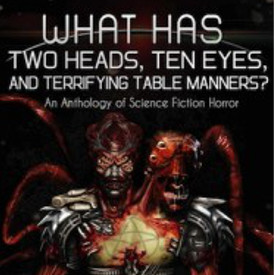
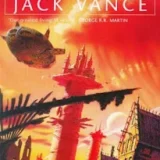
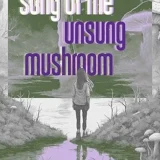
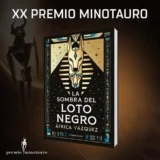
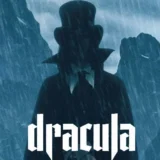

What a great review, Graeme. Every single story sounds excellent, though I confess I’m a bit leery of horror. I’ll try those, too, though. I think Eileen would do an elegant job with it.